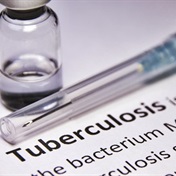
World Tuberculosis (TB) Day brings into focus the worldwide epidemic of Tuberculosis. This is, despite the causative agent of TB, Mycobacterium Tuberculosis, being discovered in the 1880’s, and the first successful anti-TB drug trial being published in 1948.
Tuberculosis is a preventable disease. A few simple steps, such as cough hygiene, good ventilation in work areas, and preventative treatment to those at highest risk of contracting TB, can dramatically decrease the incidence of new TB infections.
But why with effective preventative strategies and the existence of effective anti-TB treatment, does TB remains a huge public health problem in South Africa?
The country has seen the emergence of, first, multidrug resistant (MDR) Tuberculosis and, later, extensive drug resistant (XDR) Tuberculosis.
The rise of TB
In the past five years there has also been a rise in the incidence of TB infection among health care workers (including MDR and XDR Tuberculosis).
This has all happened while the country has been battling another epidemic – that of HIV. South Africa is the country with the third highest incidence of TB in the world and is also internationally known as the country with the largest HIV programme.
Read: How does TB spread?
HIV worsens TB
The emergence of HIV has not only changed the face of public health-care in general, but has had detrimental consequences in the fight against TB. It is estimated that almost 75% of those ill with TB are also infected with HIV.
Co-infection with HIV complicates the diagnosis and treatment of TB. Many of the symptoms of TB, such as loss of weight, loss of appetite, coughing and night sweats, can also be explained by HIV infection. Reluctance to seek health care for fear of being confronted with a diagnosis of HIV, quite often delays the diagnosis of TB.
Less is known about childhood TB and HIV
Among all the numbers, discussions, drug formulations and research is the little known and much neglected epidemic of childhood HIV/AIDS and TB. Figures describing childhood TB are often out-dated and mostly underestimate the current situation.
Children in South Africa receive a TB vaccination at birth, but all children younger than five remain at high risk of contracting TB once they come into contact with an adult infected with the disease.
Globally, the diagnosis of TB in children remains problematic. The conventional approach to diagnosing TB in adults (using X-rays and sputum) does not always provide an answer in children with TB. Radiological features in children are non-specific and they don’t often cough up sputum.
On top of this, a child co-infected with HIV is even more difficult to diagnose. Radiological features of HIV quite often overlap with those of TB.
Read: Fight TB and HIV together?
TB treatment is possible, but complicated
TB is not only preventable, but is also curable. Treatment, however, is unpleasant, protracted and consists of multiple drugs.
Failure to comply with treatment, missed or incorrect drug dosages can give rise to drug resistant TB. Once a child has been diagnosed with drug resistant TB, the treatment becomes even more unpleasant involving daily injections.
TB drugs are not child-friendly
Drug formulations are often not child friendly – large tablets are difficult to swallow and syrups are unpalatable. Dealing with this for a six month period, is often too difficult for families and children and, therefore, children often don’t complete treatment.
This can lead to devastating consequences. Some children need to be admitted to a hospital for the duration of TB treatment, which has consequences on their education.
Read: How do you treat TB?
Even though the fight against childhood TB and HIV/AIDS remains immense and difficult, it is not all doom and gloom. The need for research into effective diagnostic procedures and treatment for childhood TB has been well recognised in the past few years.
What is being done about this?
The Desmond Tutu TB centre at Stellenbosch University received international recognition in 2013 for their work. Their research on new, more effective vaccines, diagnostic procedures and child friendly drug formulations is on-going.
The late President Nelson Mandela said:
“There can be no keener revelation of a society's soul than the way in which it
treats its children.”
On World TB day we recognise that the fight against
childhood TB and HIV/AIDS is immense, difficult and far from over, but let the
world look at us and see our soul as we continue working towards beating both
these diseases to ensure healthy children in South Africa.
Written By: Dr Irma Kruger, Faculty of Medicine and Health Sciences, Stellenbosch University
Read more:
Is TB a serious illness?
10 quick TB facts
SA's plan to curb TB




 Publications
Publications
 Partners
Partners










